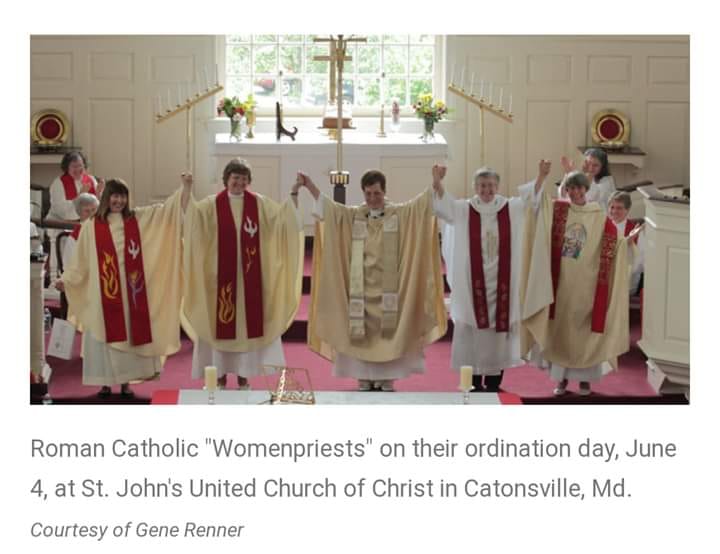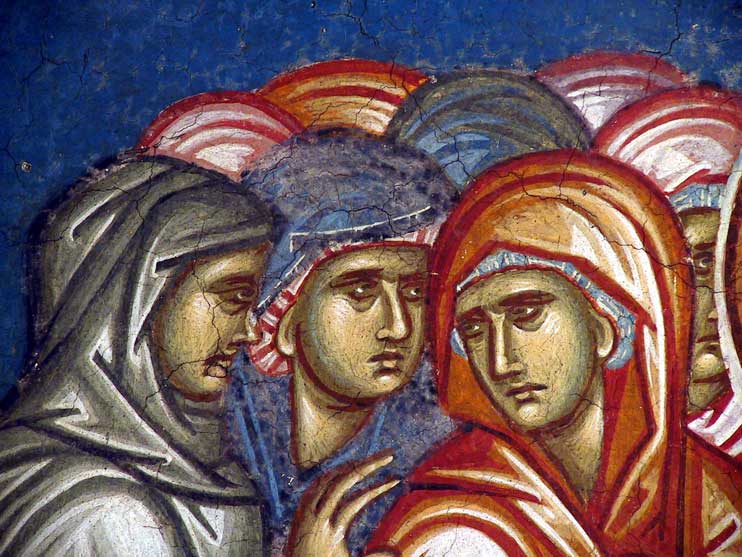Originally, I wasn’t going to delve into this. A dear friend of mine said the following on Facebook…

While women can publicly pray and prophesy in church (1 Cor. 11:1–16), they cannot teach or have authority over a man (1 Tim. 2:11–14), since these were two essential functions of the clergy. Nor can women publicly question or challenge the teaching of the clergy (1 Cor. 14:34–38).
For this post, I’m not going to deal with the letter to the Corinthians but focus on the one to Timothy. In order to do this, we will have to look at something that was written to the Romans. It helps to understand how Paul viewed women in the church.
I commend to you Phoebe our sister, who is a servant of the church in Cenchrea, that you may receive her in the Lord in a manner worthy of the saints, and assist her in whatever business she has need of you; for indeed she has been a helper of many and of myself also. Romans 16.1-2
The word servant is the word diakonos, from which we get our word deacon. Strong’s Concordance states that the general understanding of the meaning of this word was a Christian pastor or teacher. It can mean minister, servant, or deacon. Paul used it or a derivative of the word thirty-four times. Six times it clearly refers to the office of a deacon. Twenty-seven times it is translated, minister. Only once, when Paul uses the word, is it translated servant–in describing Phoebe.
It is found eighteen times in the Gospels. Fourteen of those times it is translated, minister. Most of these are clearly what we would consider ministry in the acts and teaching of Jesus. Four times, when the context is clearly what we would term a hired-servant type, it is actually translated, servant.
diakonos
deacon, minister, servant.
Probably from an obsolete diako (to run on errands); an attendant, i.e. (genitive case) a waiter (at table or in other menial duties); specially, a Christian teacher and pastor (technically, a deacon or deaconess) — deacon, minister, servant. –Strong’s Greek: 1249
When the male translators dealt with Phoebe, they had a choice. Do we make Phoebe a servant, thus in line with our views where women should be in church? We surely cannot make her a deacon. That’s too much authority. And we surely cannot make her a minister. That would leave too much room. Why, she might have been an elder, a prophetess, a pastor, or an apostle. No way! Make her a servant!
An interesting note, the Latin Vulgate renders this text a little differently:
And I commend to you Phebe, our sister, who is in the ministry of the church, that is in Cenchrae: That you receive her in the Lord as becometh saints and that you assist her in whatsoever business she shall have need of you. For she also hath assisted many, and myself also. (commendo autem vobis Phoebem sororem nostram quae est in ministerio ecclesiae quae est Cenchris ut eam suscipiatis in Domino digne sanctis et adsistatis ei in quocumque negotio vestri indiguerit etenim ipsa quoque adstitit multis et mihi ipsi)
Back to 1 Timothy 2.11-14
Let the woman learn in silence with all subjection..But I suffer not a woman to teach, nor to use authority over the man: but to be in silence. For Adam was first formed; then Eve. And Adam was not seduced; but the woman, being seduced, was in the transgression. (mulier in silentio discat cum omni subiectione docere autem mulieri non permitto neque dominari in virum sed esse in silentio Adam enim primus formatus est deinde Eva et Adam non est seductus mulier autem seducta in praevaricatione fuit) –Latin Vulgate
The translation hinges on the Greek verb, authentein. The problem is that this verb is found nowhere else in the Bible. Translators learn the meaning of a word by studying it in other Bible passages. Where there are no other Bible passages, they must look in comparative literature of the same time period. Although most translators of I Timothy have interpreted authentein to mean ‘to usurp authority’ over a man, or ‘to have authority’ over a man, such a translation violates both the context of Paul’s writing and the first century usage of the word in other literature…
Around the time the New Testament was written, the most common meaning of authentein was ‘to be, or claim to be the author or the originator of something.’ To underscore the point with a pun, this appears to be the authentic translation of authentein, the crucial verb of I Tim. 2:12.

Not only have translators overlooked the prevailing meaning of the word authentein at the time the New Testament was written, but they also seem to have missed the cultural context in which Paul wrote his letter to Timothy.
Timothy was in Ephesus. Ephesus was the world center of paganism governed spiritually by the female deity Artemis, whom the Romans called Diana. The cult of Artemis taught the superiority of the female and advocated the female domination of the male. It espoused a doctrine of feminine procreation teaching that this goddess was able to bring forth offspring without male involvement. The cult was characterized by sexual perversion, fertility rites, endless myths, and elaborate genealogies traced through the female rather than male bloodlines…
Also present in Ephesus was a contingent of Jewish Gnostics who represented the first century’s equivalent of the New Age movement. The Greek word for “Gnostic” is gnosis meaning “knowledge.” Gnostics acknowledged spirit guides and combined the teachings of Artemis with the teachings of the Old Testament story of Adam and Eve.
In the most prevalent Gnostic version of the story, Eve was the “illuminator” of mankind because she was the first to receive “true knowledge” from the Serpent, whom Gnostics saw as the “savior” and revealer of truth. Gnostics believed that Eve taught this new revelation to Adam, and being the mother of all, was the progenitor of the human race. Adam, they said, was Eve’s son rather than her husband. This belief reflected the Gnostic doctrine that a female deity could bring forth children without male involvement.
In light of the authentic meaning of the word authentein and of the social context within which Paul wrote his letters to Timothy, let me offer what I believe is an appropriate rendering of the text in I Timothy. I believe Paul is saying, “I am not allowing (present tense for that situation) a woman to teach or to proclaim herself the originator of man authentein.” Do you see how this translation offsets false doctrine (The above, not the idea of women in the clergy)?
The word that is frequently translated “silence,” hesuchia, also means harmony, peace, conformity or agreement. I would suggest Paul goes on to say, “she must be in agreement,” meaning agreement with the Scriptures and with sound teaching in the Church.
He continues in this vein saying, “Adam was formed first, then Eve.” This statement militates against the doctrine of Eve as progenitor. He also says, “Adam was not deceived, but the woman was! And sinned!” This statement directly contradicts the notion that Eve was the “illuminator,” and carrier of new revelation.
Context is always key, not only in the surrounding text where the scripture is found but also the audience that Paul’s letters are for. You already know, I feel that the teachings of Paul are the basis for the whole of Christianity, so understanding to whom and why a letter was written is vital to understanding the passages. But this requires thinking outside the rigid box that is imposed by the Church.
